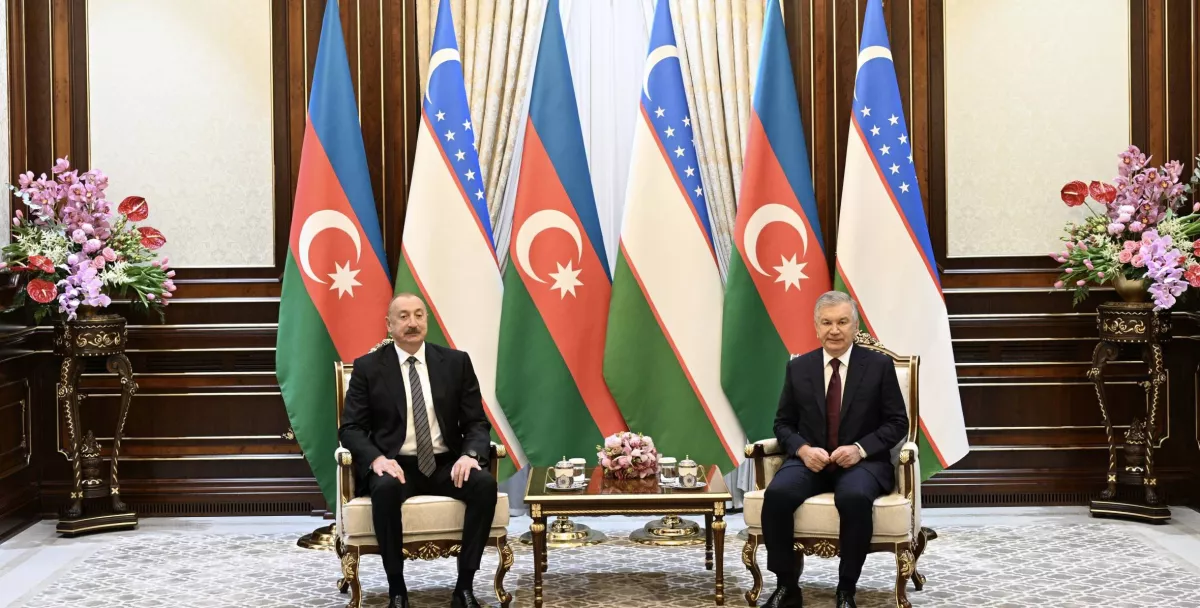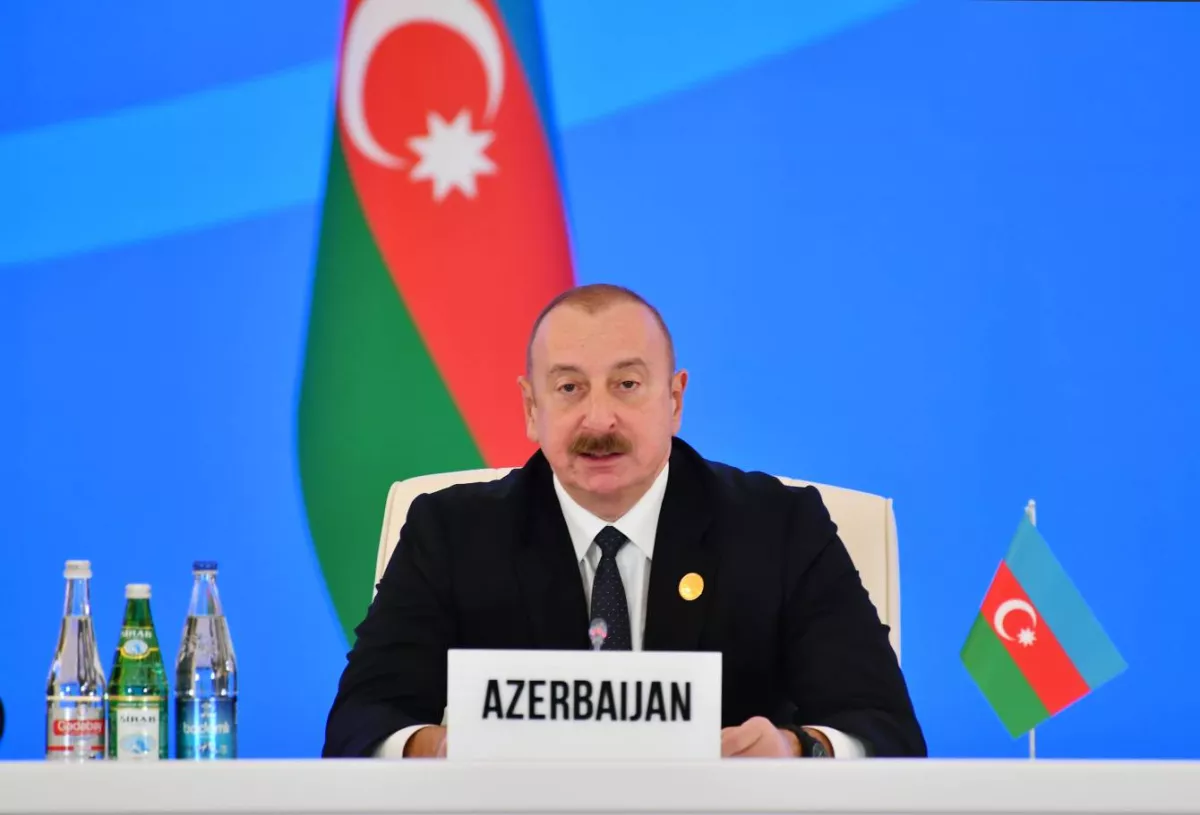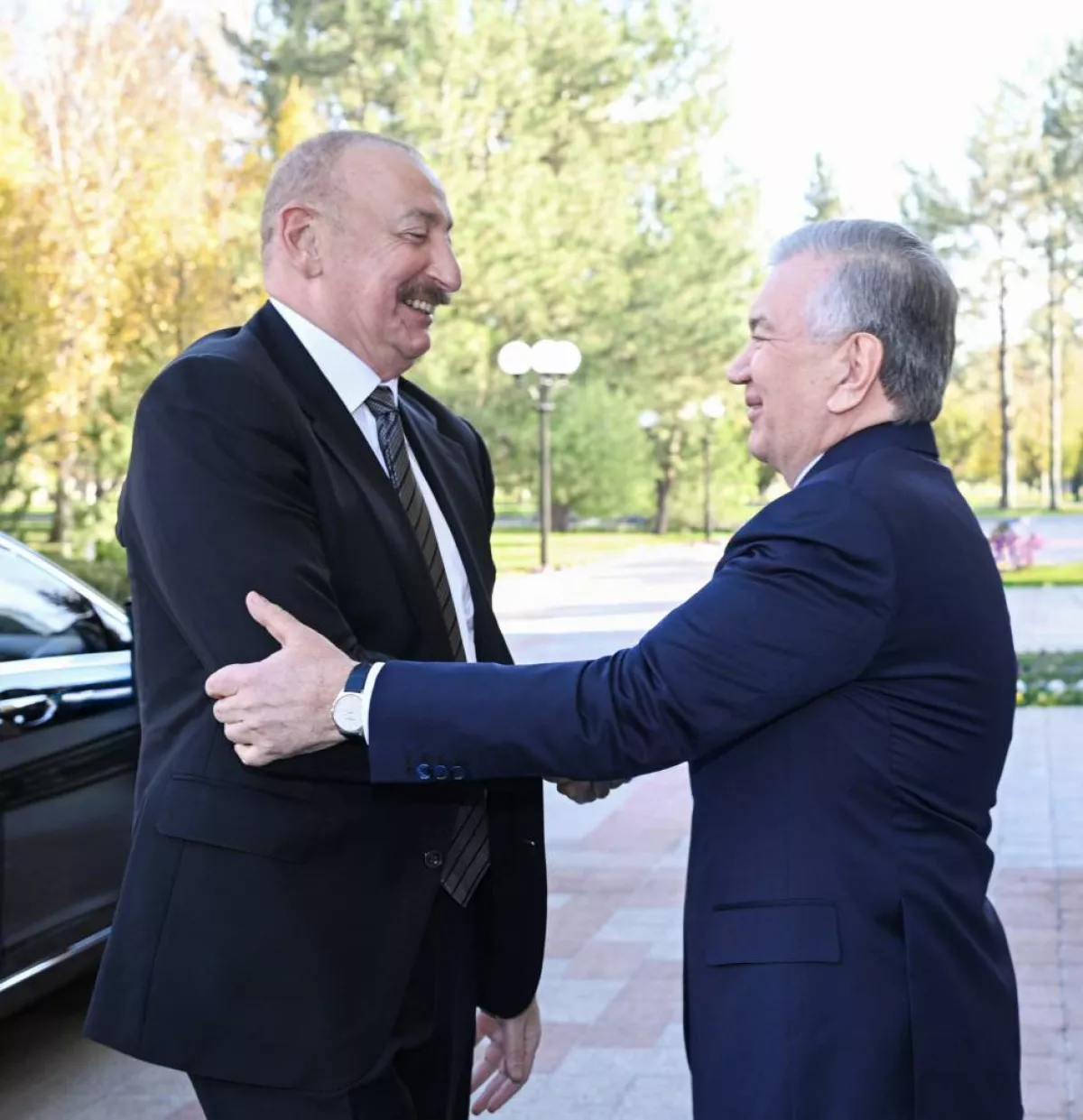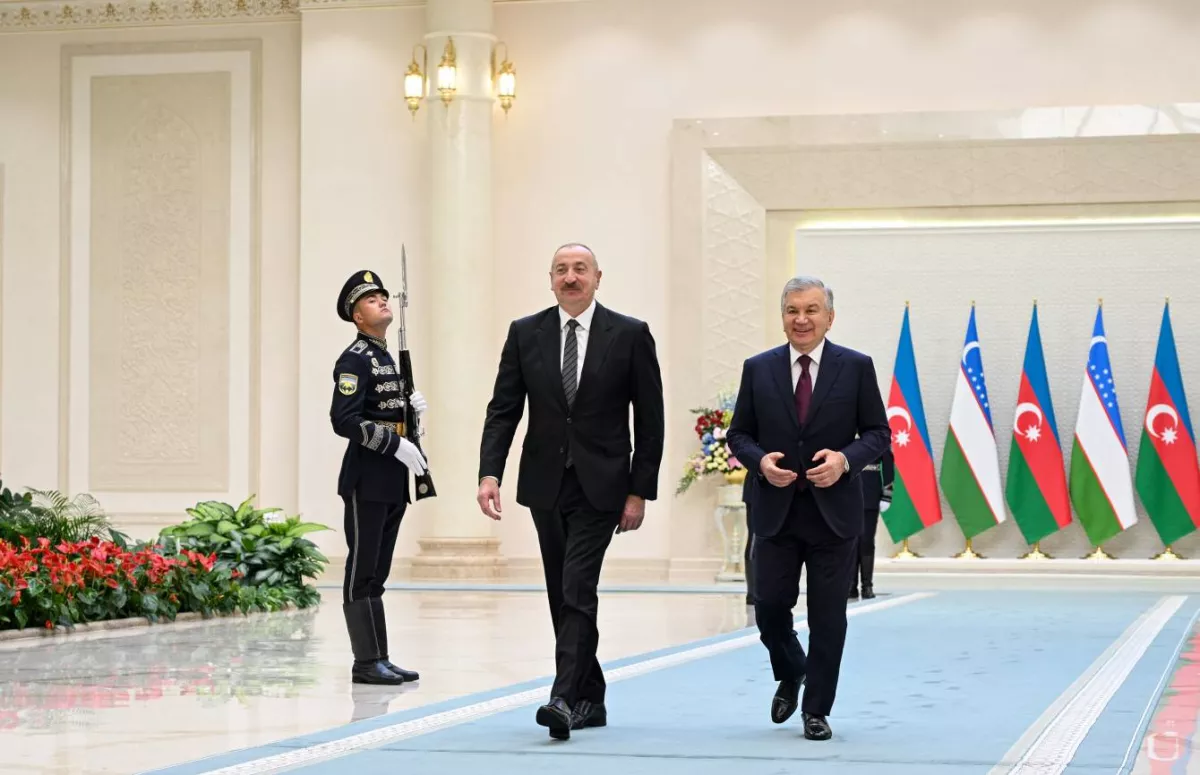Central Asia – Azerbaijan: a unified political-economic and cultural-spiritual space Beyond C5+1
Life can sometimes unfold in remarkably interesting ways, especially when viewed through the lens of global geopolitics. We see confirmation of this in the events of today. Hardly anyone is surprised anymore by the visit of President of Azerbaijan Ilham Aliyev to Uzbekistan, which began on November 15 at the invitation of President Shavkat Mirziyoyev, to participate in the 7th Consultative Meeting of the Heads of State of Central Asia.

And yet, how much was said by certain ill-wishers regarding the Azerbaijani leader’s participation in the 5th Consultative Meeting of the Heads of State of Central Asia in Dushanbe in 2023 — the very forum to which President Aliyev was, for the first time in history, invited as an honoured guest. In doing so, he became the first head of a state outside the Central Asian region to take part in a Consultative Meeting.
Back then, in his keynote speech in the capital of Tajikistan, Ilham Aliyev delivered a history lesson to all detractors and sceptics. He reminded them of the centuries-old brotherly ties between Azerbaijan and the Central Asian countries, and of the shared cultural roots that form the solid foundation of inter-state relations. The head of state described Central Asia and Azerbaijan as a single historical and cultural geographical region of strategic importance in global politics, with growing economic, demographic and geopolitical potential. Noting that he was taking part in the work of the Consultative Council for the first time, President Aliyev expressed confidence that this format of regional co-operation would continue to contribute to the rapprochement of the countries and peoples.
Ilham Aliyev’s words, as usual, were borne out in practice. Later that same year, Baku hosted the summit of the UN Special Programme for the Economies of Central Asia (SPECA), and in 2024 the head of state once again, as an honoured guest, took part in the 6th Consultative Meeting of the Heads of State of Central Asia in Astana. Speaking there, he once again emphasised the unity of the historical, cultural and geopolitical space shared by Central Asia and Azerbaijan, whose strategic importance continues to grow.

President Aliyev identified support from the countries of the region in restoring the territories of Karabakh liberated from Armenian occupation as one of the manifestations of our brotherly ties. At the same time, given the growing global threats and challenges, he emphasised the need to further strengthen co-operation between our states in the fields of defence and security.
Even these nuances alone are probably sufficient to understand the exceptionally high level of mutual understanding that has been achieved between the Central Asian countries and Azerbaijan. This was particularly evident shortly before the recently concluded C5+1 meeting in Washington, when President of Kazakhstan Kassym-Jomart Tokayev described the participation of official Baku in this format as desirable, noting that Azerbaijan could be regarded as a “natural part of Greater Central Asia.”
At the same time, Mr Tokayev emphasised that our country — thanks to its energy resources, advantageous geographical location, strategic vision and the political will of President Ilham Aliyev — plays an exceptional role, having become a regional transport, logistics and energy power.
Incidentally, it was within the framework of the Washington consultations between the US President and the leaders of the Central Asian states that Azerbaijan’s importance was highlighted from a distinct angle: participants focused not only on the geopolitical format of the Middle Corridor, but also on the Zangezur route, which is increasingly being referred to as the “Trump Route.”

Therefore, the current visit of the head of state to Uzbekistan to participate in the 7th Consultative Meeting of the Heads of State of Central Asia can hardly surprise or puzzle anyone anymore.
As President Ilham Aliyev stated ahead of the visit, the Caspian Sea today has become not merely a geographical concept, but above all a symbol of the strategic unity, economic potential and historical co-operation of our peoples, united also by shared cultural and spiritual values, traditions and customs.
It is precisely from this perspective that Baku attaches particular importance to the comprehensive development of co-operation with all the countries of the region at the highest level. Within this framework, the strategic partnership and allied relations built between the Central Asian states and Azerbaijan, along with active political dialogue and reciprocal visits, play a key role in the success of this special format of mutual understanding.
Let us agree: the processes unfolding in this direction clearly demonstrate Azerbaijan’s strong international standing. Following President Ilham Aliyev’s active participation in the 7th Summit of the European Political Community in Copenhagen, the 12th OTS Summit in Gabala, the CIS Heads of State Council meeting in Dushanbe, and the Middle East Peace Summit in Egypt, his visit to Tashkent is now taking place.
Undoubtedly, all these foreign policy tracks are of great importance — and not only for Azerbaijan. However, it is the Central Asian vector that stands out with particular vividness. So much so that while the Central Asian states hold key meetings with China, the European Union, the United States or Russia in the C5+1 format, in relations between the Central Asian region and Azerbaijan no such “pluses” are needed at all.
Because Central Asia and Azerbaijan constitute, in effect, a single geographical, geopolitical, spiritual and cultural space that unites our peoples. It is a single area — in every sense.
In this context, on the sidelines of the 7th Consultative Meeting of the Central Asian countries with the participation of Azerbaijan, issues across a wide range of areas will naturally be discussed — both in bilateral and multilateral formats: from the political and economic agenda to cultural and humanitarian co-operation.
Particular attention will undoubtedly be given to the issue raised by President Ilham Aliyev on the eve of the meeting — ensuring the security of international transport routes that hold strategic importance for our countries and for the region as a whole. After all, the extensive transport network connecting Europe and Asia runs precisely through the territories of Central Asia and Azerbaijan, clearly demonstrating the leading role of this unified regional area in the development of the East–West and North–South corridors.

This line of mutual understanding has already been reaffirmed during the meeting in Tashkent between the presidents of Azerbaijan and Uzbekistan. At the start of the conversation, Ilham Aliyev thanked Shavkat Mirziyoyev for inviting him to take part in the Consultative Meeting, while the leader of Uzbekistan congratulated the President and the brotherly people of Azerbaijan on the fifth anniversary of Victory, marked on November 8.
The sides discussed pressing issues relating to the further development and strengthening of Uzbek–Azerbaijani strategic partnership and allied relations, in the context of the agreements reached during Mirziyoyev’s state visit to Baku in July of this year. It was noted that since the beginning of the year, trade turnover has increased by 15%, and joint industrial co-operation projects in automotive manufacturing, energy, tourism and other sectors are in an active phase. The leaders also reviewed the schedule of upcoming high-level meetings and events.
Without doubt, the outcomes of the 7th Consultative Meeting of the Central Asian countries with the participation of President Ilham Aliyev — his third time at this traditional forum — will further strengthen mutual understanding between our countries and peoples. This is especially important amid a global geopolitical environment that, although gradually stabilising, still carries notable turbulence. All our states must continue to uphold stability and security within our shared space — which will enable us to move forward confidently, together.








